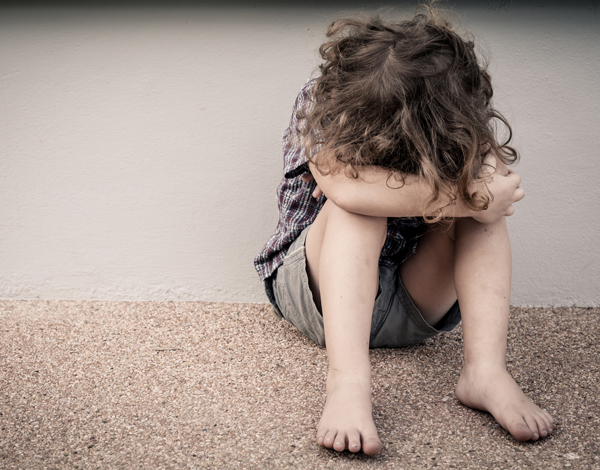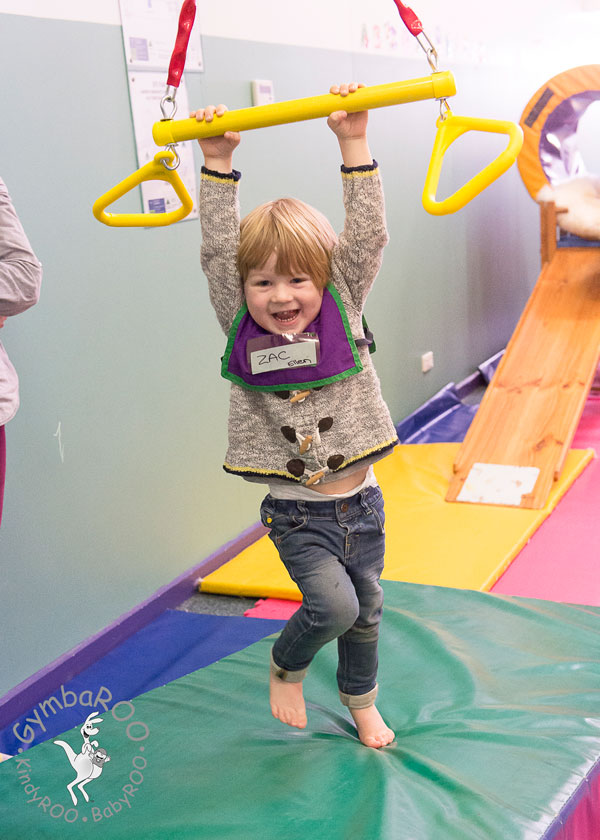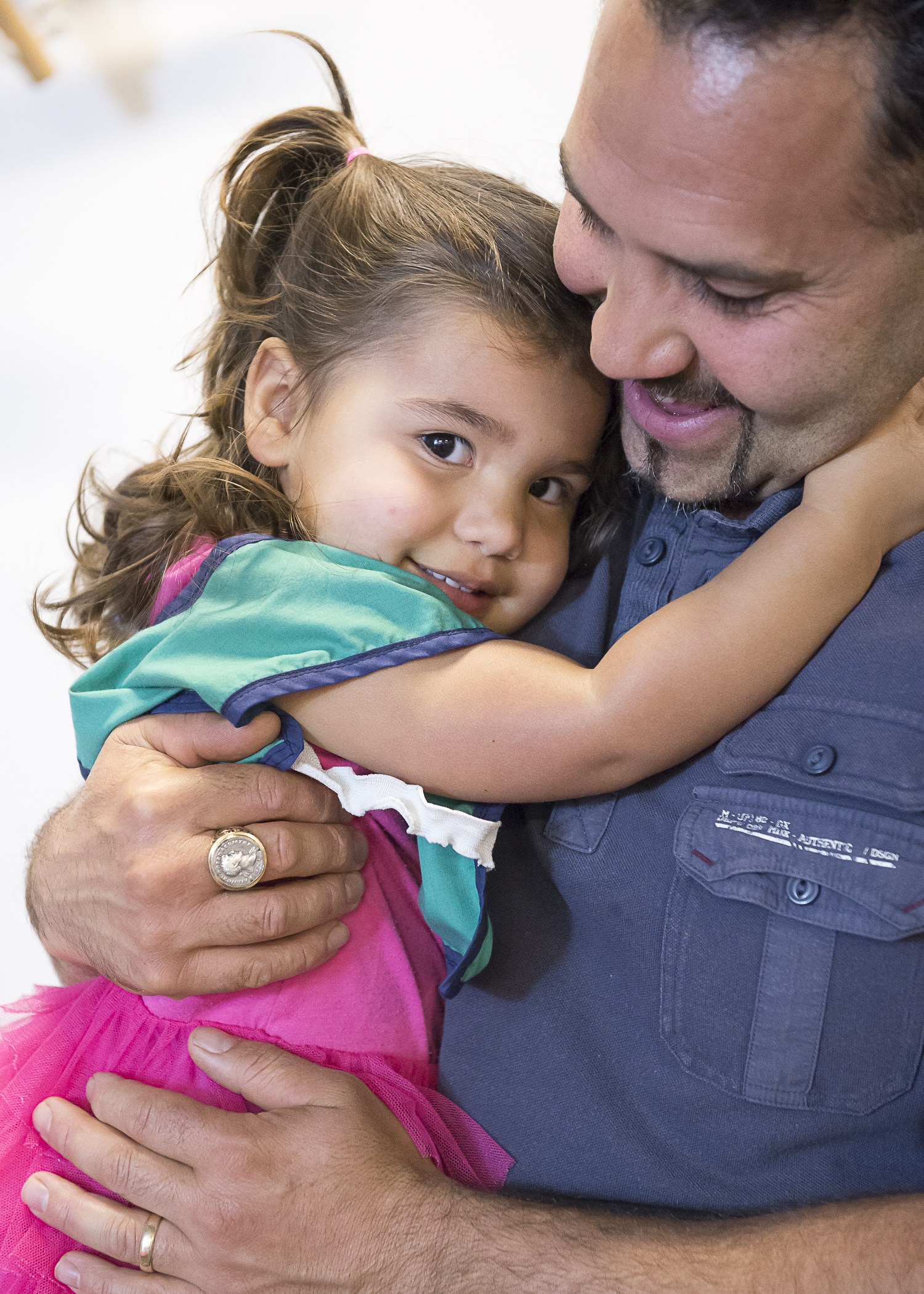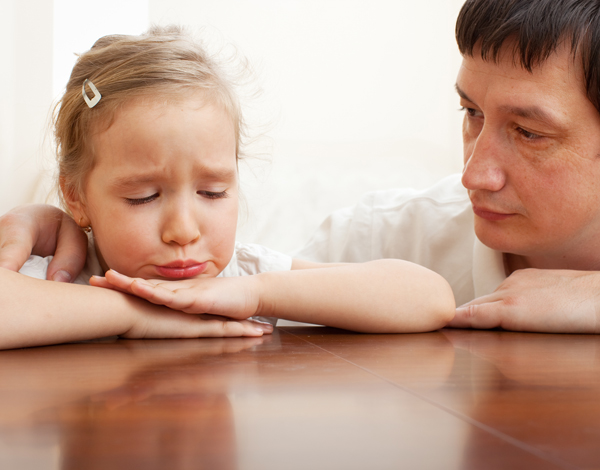Join the thousands of parents already raising smarter, happier babies with our online baby classes: The Active Babies Smart Kids series. Click here.
GymbaROO-KindyROO kids are excelling academically, emotionally, in leadership roles and on the sporting field. Find us at: GymbaROO-KindyROO
Hurried, overscheduled, overstimulated and even stressed are words describing some of our children’s lives. Are we unwittingly lowering the quality of life for those we mean to nurture? Is stress bad for the body and bad for the brain? We know that a certain amount of stress actually helps us feel alert, energised and interested in life. But we’ve all heard reports on the ‘silent killer’. While we know that adult stress can lead to serious illnesses, we don’t often associate these with children.
Dr John Medina, Professor of Bioengineering at Washington University, found that children caught up in the ‘rat race’ of life do pay a price, because their brains are not yet fully developed. He points out that stress damages virtually every kind of cognition that exists. It damages memory and executive function. It can hurt motor skills. It disrupts the immune system and children get sick more often. It disrupts ability to sleep. It actually shrinks the brain.
It’s useful to understand the physiological effects of stress on the brain. When a child experiences stress, the hypothalamus area of the brain releases a hormone that rushes to the neighbouring pituitary gland. The pituitary gland then mobilises the production of a second hormone that swims via the bloodstream to adrenal glands above the kidneys. The adrenal glands activate adrenaline and cortisol. Adrenaline accelerates the heart rate and elevates the blood pressure and cortisol pumps up the blood sugar level.
When the brain is stressed for periods of time, stress hormones end up swamping the body. Research shows that cortisol specifically chews up the brain if it lingers there long term. When lab rats were given daily injections of rat cortisol for several weeks, it killed brain cells in their hippocampus region, leaving them anxious, fearful, immature, needy and unable to learn new behaviours. Brains under stress will have trouble learning new things and committing new material to memory.
Children’s fast developing brains are especially vulnerable to ravages of cortisol. Many studies have found that children who are exposed to extremely stressful situations, have significantly lower IQs than children not exposed to such stress. Newer studies suggest it’s not only extreme kinds of stress that can affect children’s ability to learn and think. In 2009 Virginia State University scientists found that children exposed to household chaos had lower IQ and more behaviour problems.
It seems that it is not enough for parents to keep the house in order, avoid spanking and refrain from verbal chastisement. This is certainly advisable, however experts suggest that this may not be enough to protect their child from stress related brain drain. Parents should be examining if their children’s lives are too rushed, too busy, too over-organised and how much time the child has for play, relaxation and physical exercise.
Medina, points out that exercise stimulates the hippocampus growth and fosters neuron development. Exercise is one of the best things children can do to combat stress. It not only increases neuron creation but also neuron survival and resistance to damage and stress. He explains that maintaining regular physical activity is one way to help promote both stress resistance and stress resilience. Most of all, exercise boosts brainpower.
The Australian Government recommends that children do at least 60 minutes of physical activity a day and this should be a combination of moderate and vigorous activities. A moderate activity would be a brisk walk and could include bike riding or any sort of active play. More vigorous activities include running, dancing and swimming. Most importantly children need the opportunity to participate in a variety of activities that are fun and suit their interests, skills and abilities, like GymbaROO! Along with plenty of physical activity, children also need good food for healthy brain development.
Here are a few more ways to help counter childhood stress
- Massage provides the opposite effect to stress – relaxation. The cortisol released during stress is then countered and lowered with the good-mood hormone serotonin, which is released during massage. Learning how to relax during stressful times is important and teaches the brain how to respond appropriately. Physical contact is one of the best stress relievers there is. The positive brain stimulation children get from being touched with care in early childhood, helps build the brain’s pathways that assist them to cope with stress.
- Allow for plenty of unstructured playtime. Play is fun and can trigger the release of endorphins, the feel-good chemicals. Endorphins promote an overall sense of well-being. They help children let go of some of their stress. Play provides a way to express their feelings through a natural and self-guided process.
- Children require ten to twelve hours of sleep every night to feel their best. A regular bedtime and routine with quiet, calming activities such as listening to calming music or reading a story helps sleep. Turning the TV or computer games off at least one hour before sleep prevents overstimulation. Read more here.
- Allow children the opportunities to make small choices that are age appropriate. By feeling they have control over a situation they generally will respond better to stress.
- Sometimes children do not feel like talking about what’s bothering them. It’s important to respect that and give them space, but still show them that you will be there when they do feel like talking. Just keeping company in the same room, can often be helpful.
- If a child seems down, stressed or having a bad day, initiating some fun together helps. This teaches children that there is a way people can take care of themselves and cheer themselves up. Children will also appreciate the chance of spending special time with you.

Marianne Schriever is a past School Principal and neuro-educational consultant for GymbaROO/KindyROO
GymbaROO Images by Studio Z Photography
References: Brenner D. MD, Stress on the Brain, Clinical Neuroscience December 2006, Medina J. Brain Rules , 2011 Pear Press
GymbaROO-KindyROO
Thousands of parents, babies and children are presently involved in our programs and creating rising stars. GymbaROO-KindyROO kids are excelling academically, emotionally, in leadership roles and on the sporting field. Come join all the fun and learning! “GymbaROO – The best decision I ever made for my child.” Classes from 6 weeks old – 7 years GymbaROO KindyROO
Active Babies Smart Kids – Online Baby Classes
GymbaROO-KindyROO’s online series of baby classes is taking the parenting world by storm! It is highly recommended by doctors, paediatricians, early childhood experts and the Maternal Child and Family Health Nurses Association. This series is being called: “The essential guide for parents”. Join the thousands of parents already playing with their babies from birth, in the best way for brain and body development and laying crucial foundations for future learning. What happens in the first year, not only matters, it matters a lot!
Click here: Active Babies Smart Kids online series of baby classes
Try the first episode FREE: Tummy time + baby fun and development class 1
Enjoy the following GymbaROO-KindyROO articles
GymbaROO-KindyROO: Who, what, where, why and how
All about GymbaROO-KindyROO’s online baby classes for parents and babies: Active Babies Smart Kids
How to raise a smarter, happier baby
Overstimulation. Is your baby at risk of sensory overload?
He May Not ‘Grow Out of It’. A Checklist for Parents of 0 – 5 Year Olds.
Separation anxiety and steps to make it easier.
The benefits of dancing with your baby.
Understanding tantrums – it’s all about the brain.
Click here for more GymbaROO-KindyROO article choices

